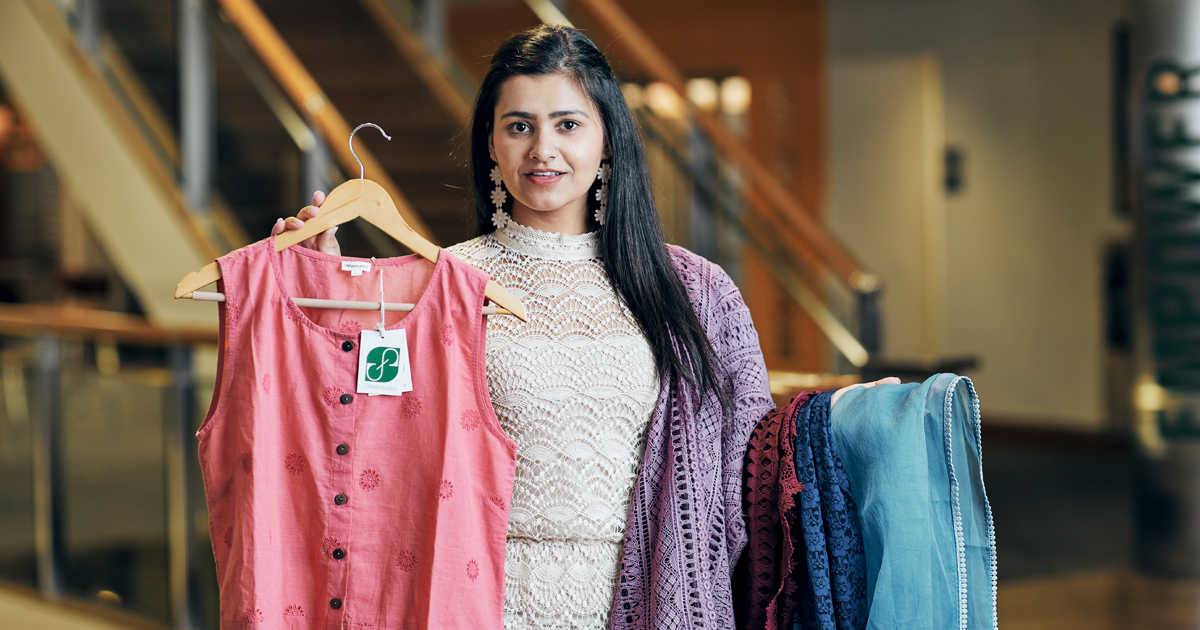‘They Care About This’

Prabaarja Bedi MBA’20 came to Babson knowing she wanted to pursue entrepreneurship. But she wasn’t sure what shape that would take until she spoke with Sinan Erzurumlu, associate professor of operations management.
Bedi’s family has a textile business in India, and she was speaking to Erzurumlu about his course lessons in sustainability and operational efficiency and how she might apply them.
That’s when he asked her: “Why don’t you think about ways that waste can be reduced?” And as Bedi thought about that question, and thought about the incredible amount of waste the textile industry creates, the proverbial light bulb blinked over her head.
The end result was UNfabricated, a socially and environmentally responsible brand that produces furnishings, apparel, and accessories from leftover materials from the Bedi family business.
“I realized there is a lot of waste that is generated, but it’s in usable form,” says Bedi, a member of Babson’s Women Innovating Now (WIN) Lab®, a business accelerator in Boston. “I saw it as an opportunity.”
In addition to reducing waste, the venture also seeks to empower impoverished women. All of the company’s products, which Bedi and her mother design, are made by 17 rural women working at an all-female production house that provides skills and fair wages.
Bedi—who was named to Poets & Quants’ 100 Best & Brightest MBAs of the Class of 2020 in early May—has long had an interest in helping women in need, but she admits she never thought of that as a business opportunity. “I thought it was social work,” she says.
With her business, Bedi joins a growing number of Babson graduate students who are thinking hard about how environmental and social concerns play out in their ventures and careers. “We hear from students,” Erzurumlu says. “They are asking questions. They care about this.”
How central are these issues to Bedi now? Just take a gander at her laptop, where she displays three stickers. Each corresponds to one of the Sustainable Development Goals of the United Nations that are so pertinent to her business: no poverty, responsible consumption and production, and gender equality.
READ MORE: More Than Profits: The Importance of Integrated Sustainability »
Posted in Community




